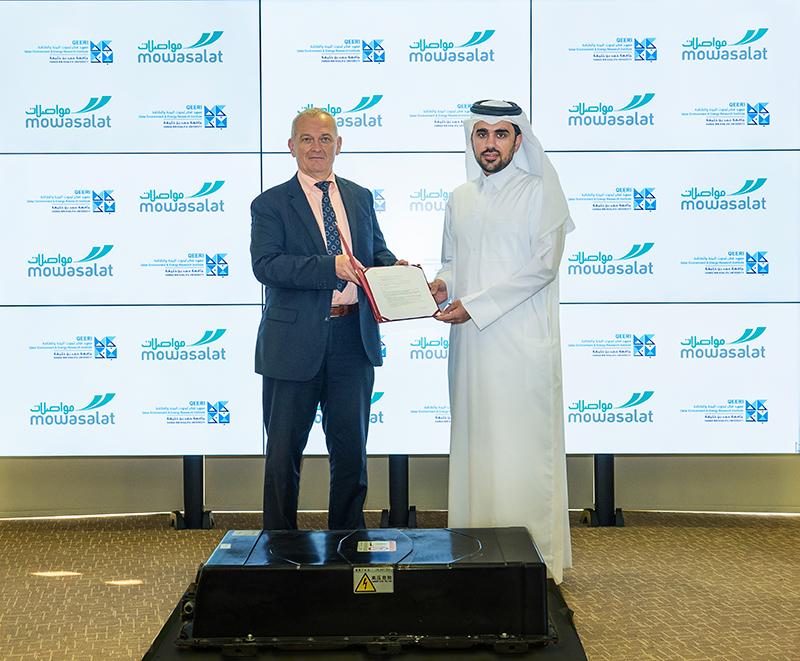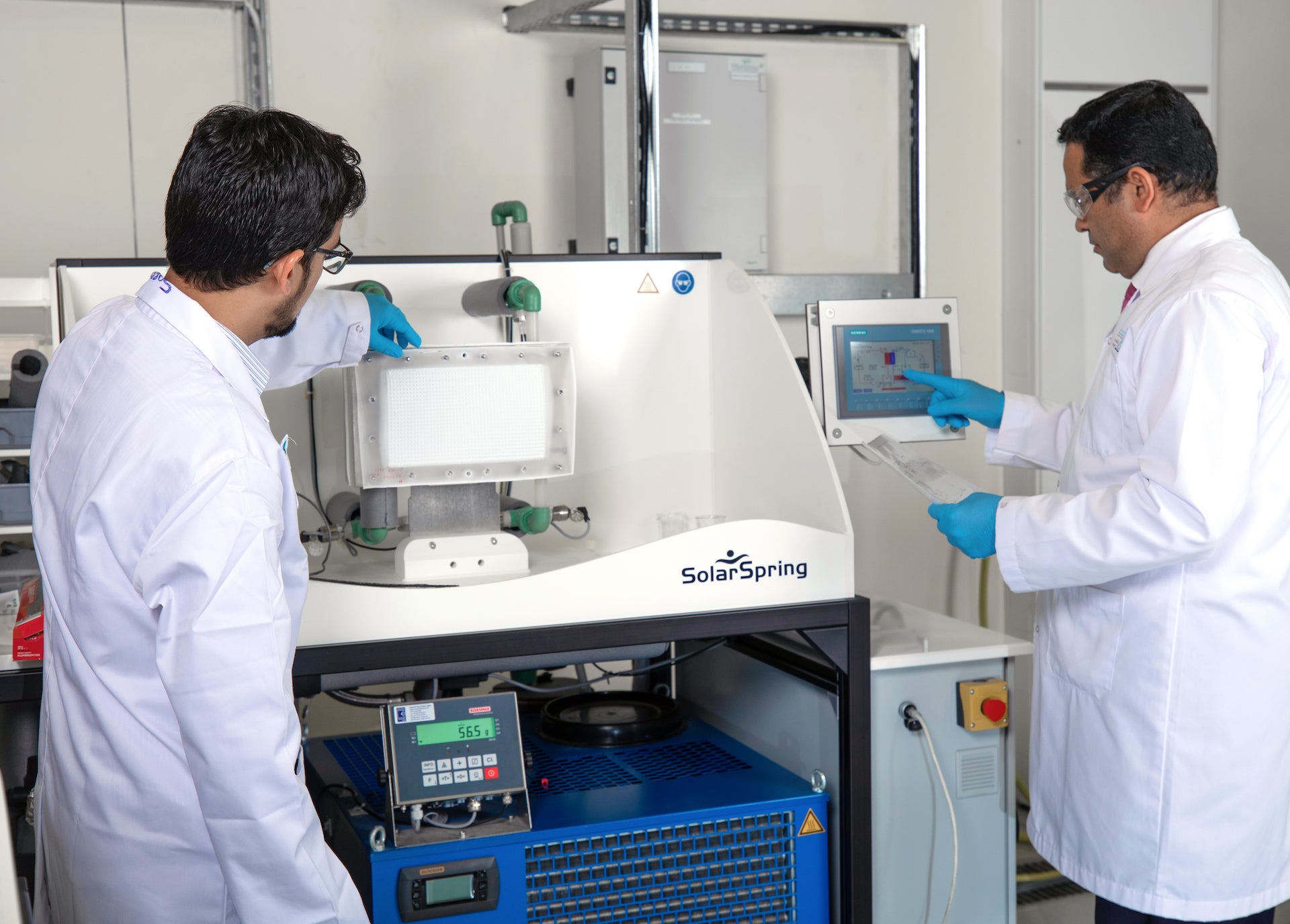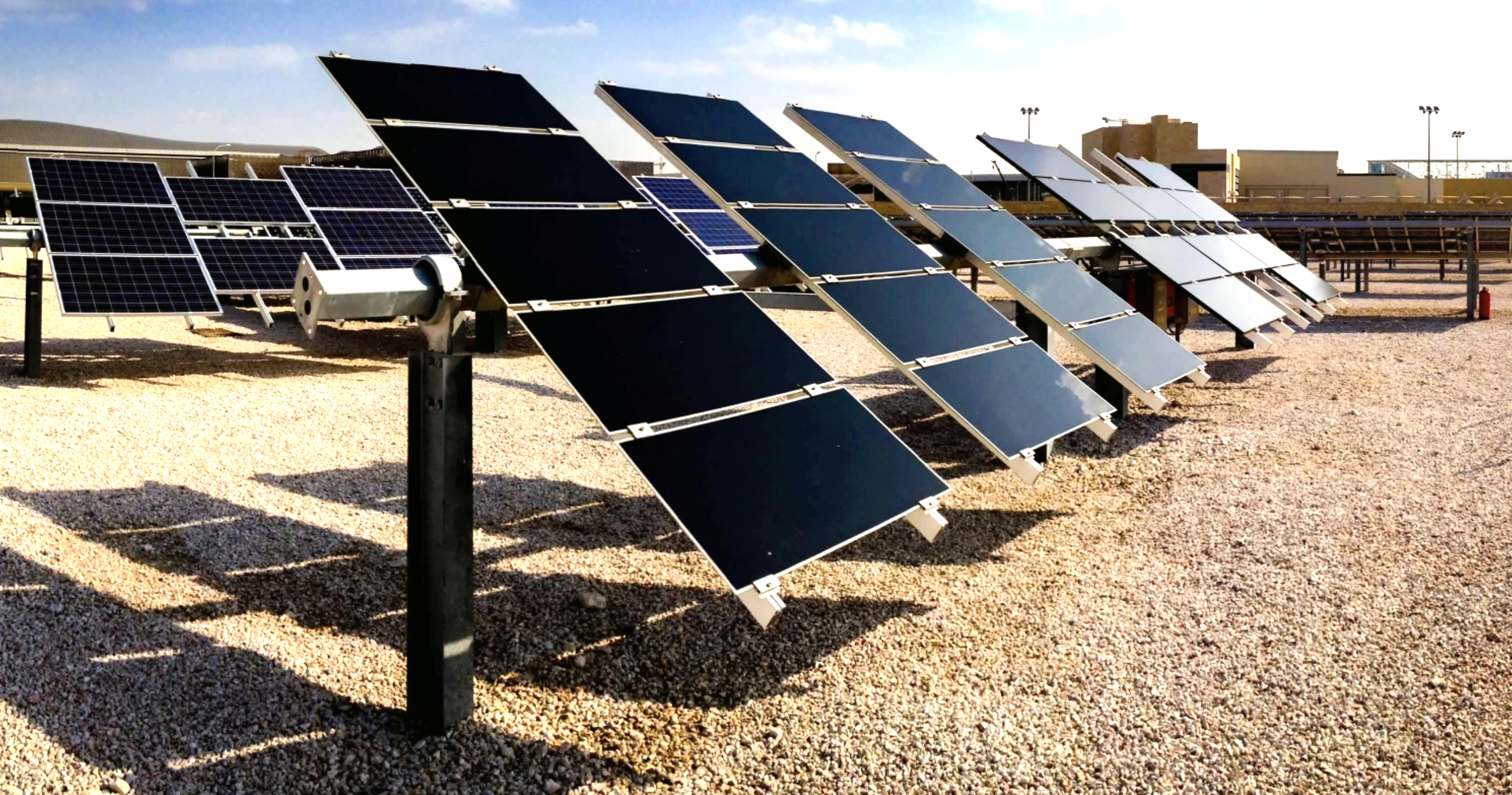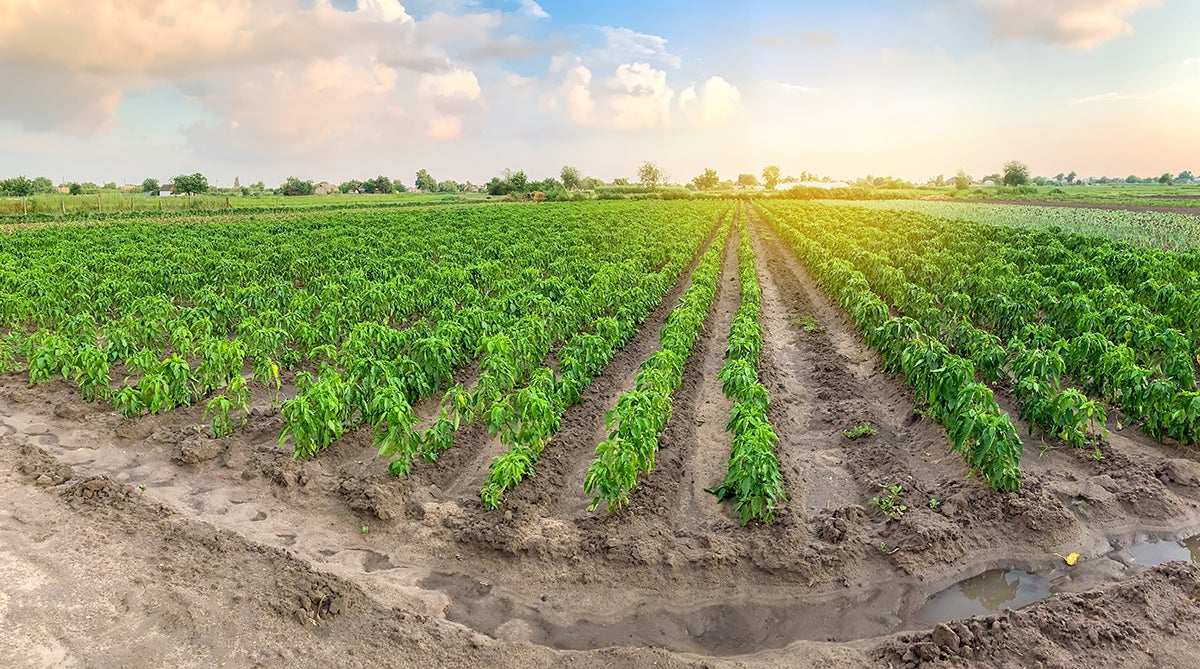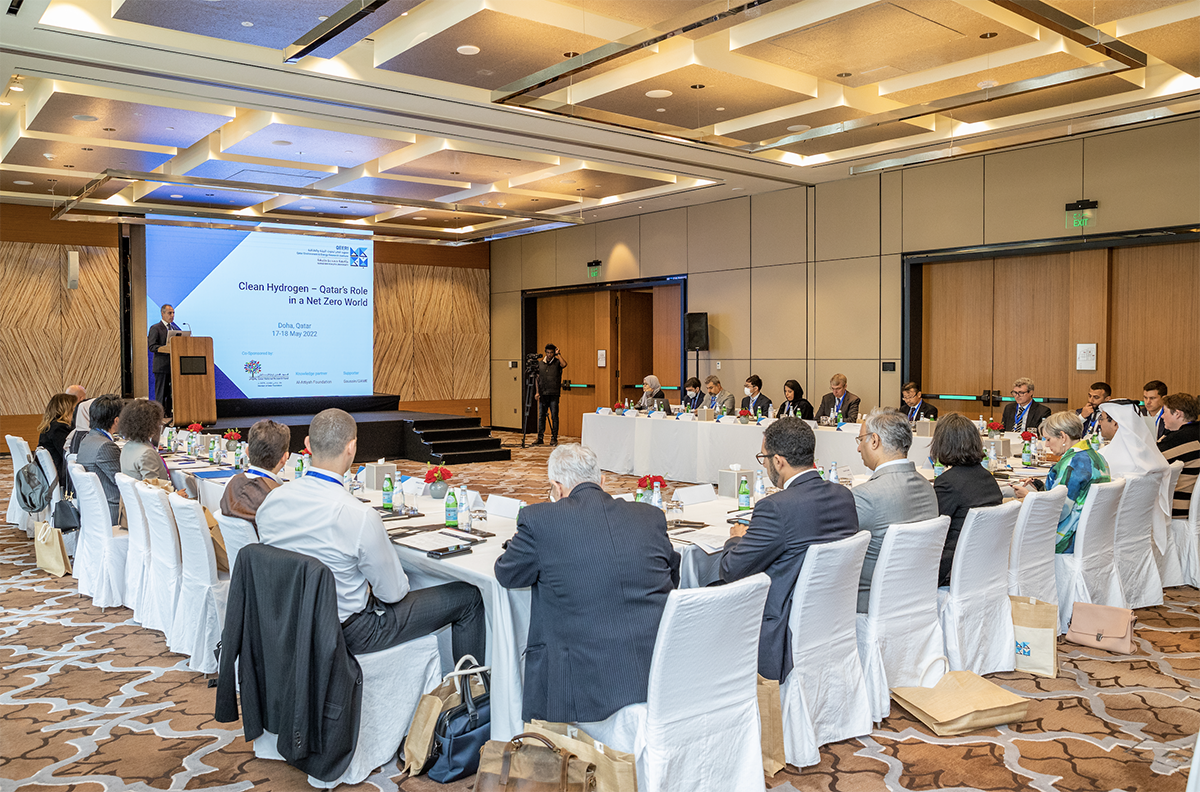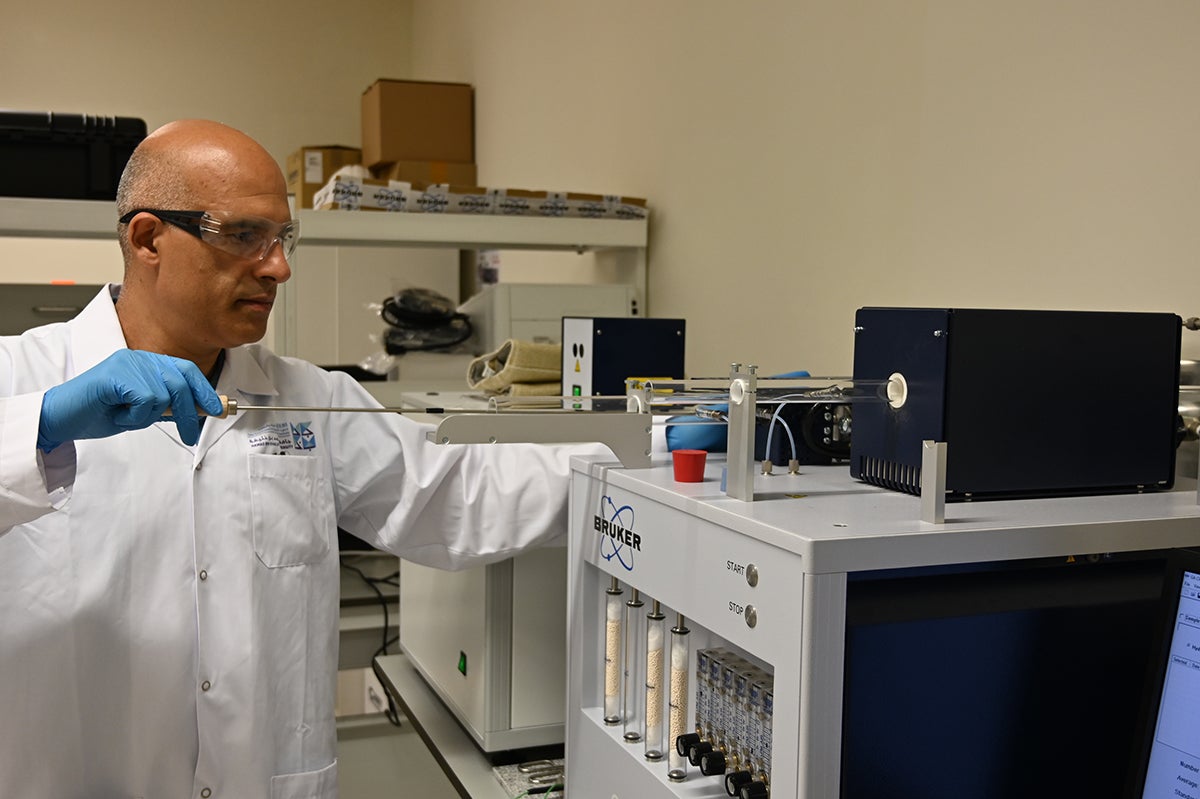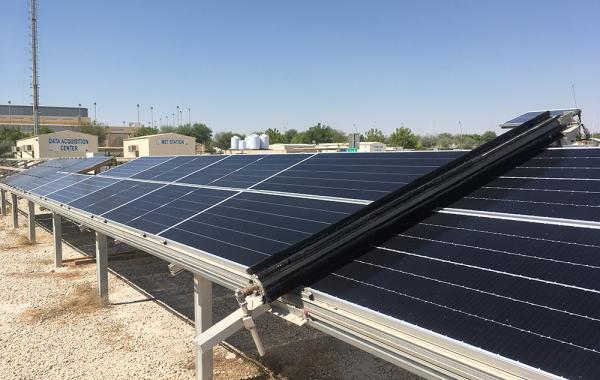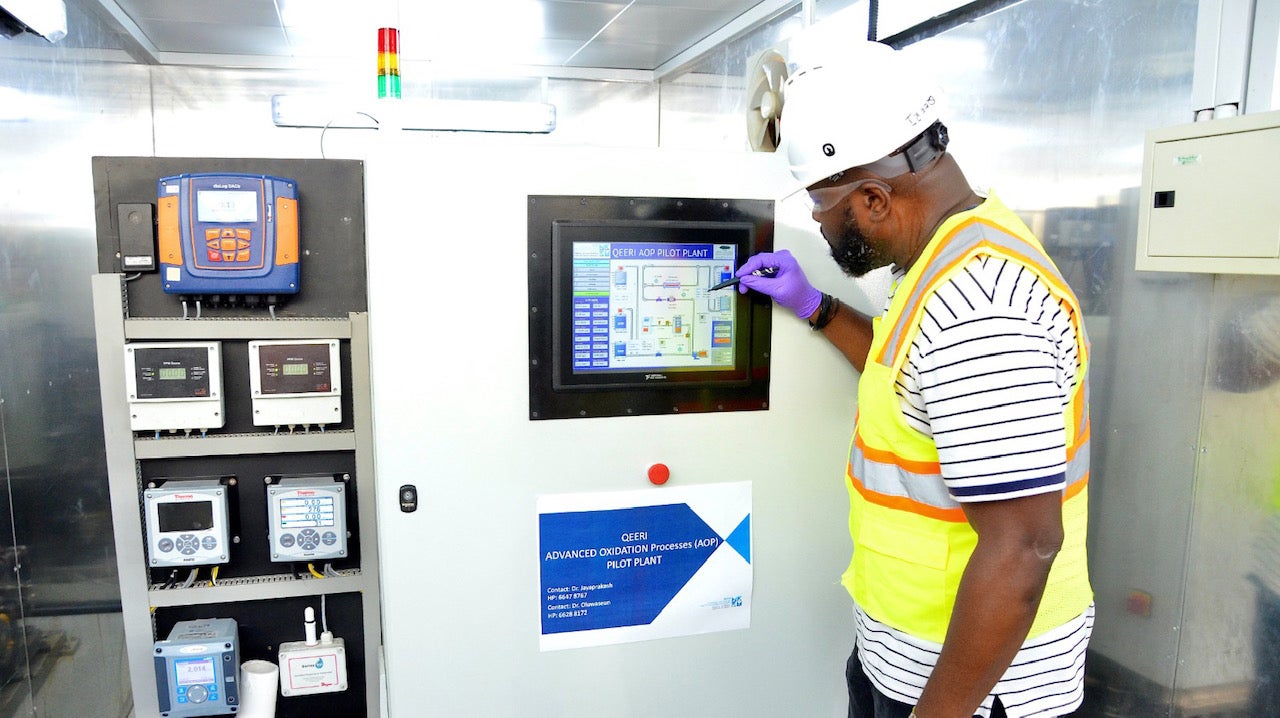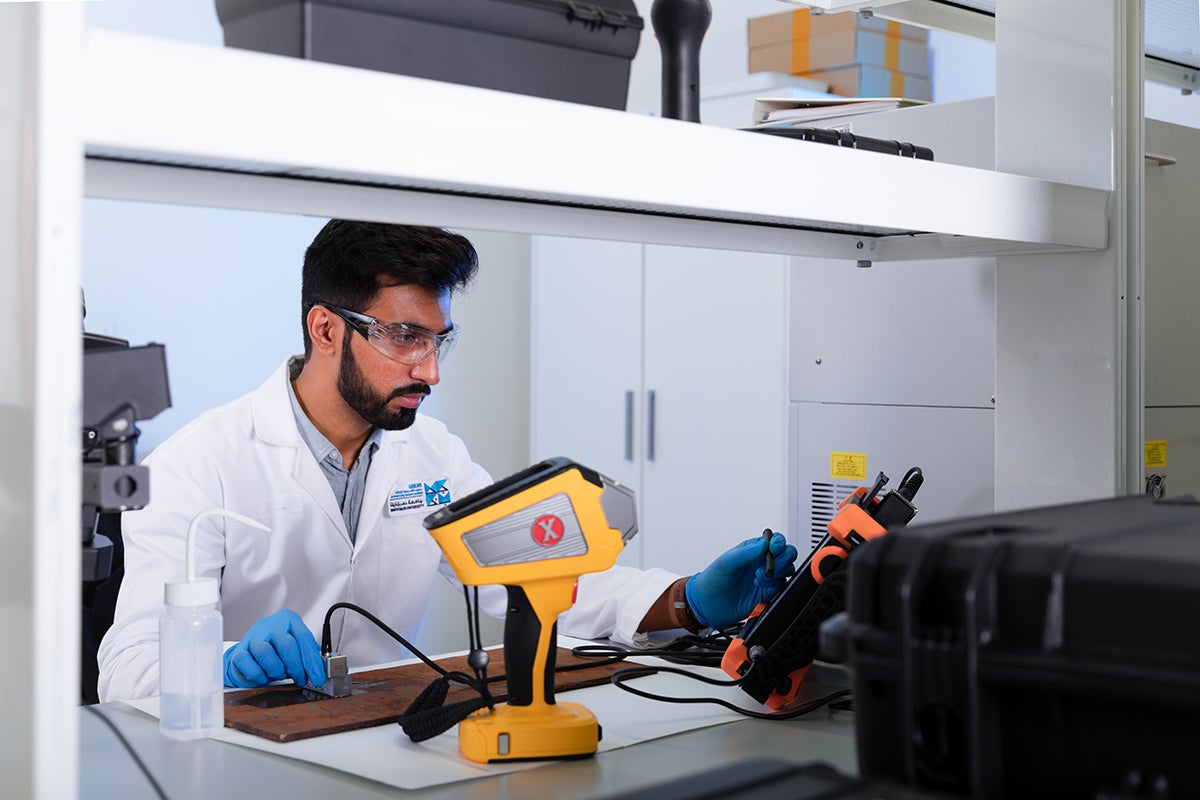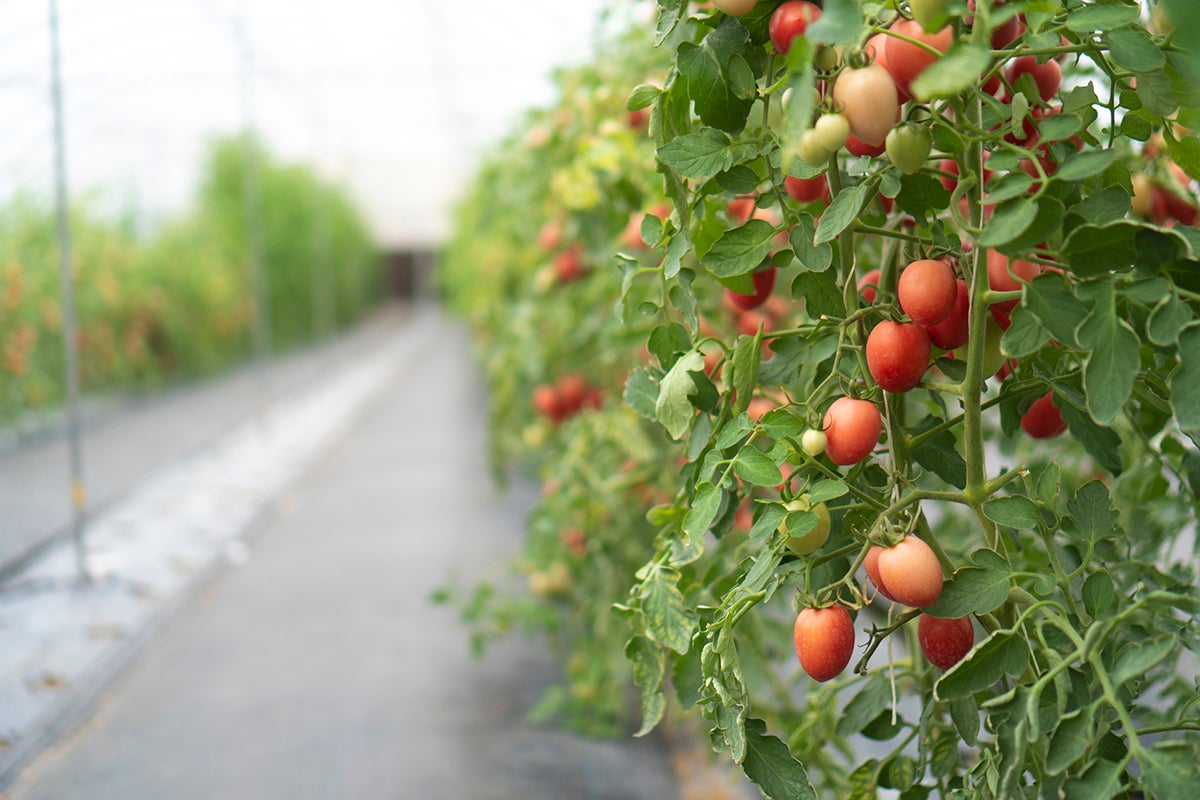
Why Qatar’s Food Security Efforts Are Paying Dividends
by Dr. Annamaria Mazzoni

Qatar’s quest for food security and sustainability has received much attention since the blockade and all the sectors in the country have shown the ability to prioritize it and align actions for its realization. Local food production has boomed over the past four years, and farming activities have increased across Qatar. Several market and governmental incentives were put in place to facilitate producers and consumers in supporting local products.
Role of Food Security Strategies
Qatar’s National Food Security Strategies (2018-2023), currently undergoing updates, focus on enhancing local food production, the diversification of import sources, building up a strategic reserve to balance food stocks, making optimal use of the country’s natural and water resources, and the employment of renewable energies in the agricultural sector. These efforts have granted unprecedented stability to the food and agricultural sector, which has proven resilient during the COVID-19 epidemic. Thanks to the policy focus, cross-sectoral strategies, and long-term planning, Qatar was indeed able to sustain the sudden disruption of global food supply chains caused by the pandemic and as of 2021 Qatar ranks 24th globally and second at regional level accordingly to the Global Food Security Index (GFSI) by the Economist Intelligence Unit (EIU).
Looking at the path ahead, Qatar shall continue to strive to attain a sustainable food system. Climate change is one of the global challenges and the expansion of the use of renewable energies should also apply to the food sector. Similarly, diversification of water sources and groundwater conservation is crucial for sustainable natural resources management. Food waste reduction is a key aspect for further development of the food sector and goes hand in hand with food safety practices. Monitoring plays a critical role in quality assurance and observance of standards for the import, production, processing, preparation, and disposal of food products, since a big part of the food is still imported. Lastly, further research and efforts in improving healthy diets and food habits should be materialized in related policies.
Importance of Food Security Research
Food security and food systems’ sustainability are an integral part of the research topics across all centers and programs at the Qatar Environment and Energy Research Institute (QEERI), part of Hamad Bin Khalifa University. Thanks to its diverse expertise, QEERI is tackling the environmental, economic, and social challenges of improving local food production and enhancing the food security sector in the country.
QEERI can provide national stakeholders and the private sector with a different set of research-based outcomes that can serve as a base for redefining current food security policies as well as developing Qatar-tested agricultural technologies. Our groundwork on agri-PV sees collaboration with local farms and support from research funds from Qatar Foundation’s Qatar National Research Fund and the Ministry of Environment and Climate Change. It focuses on developing different combinations of agricultural infrastructure and photovoltaic installations and on AIoT and machine learning to enhance crop yield and increase the efficiency of water and energy supply for farmers.
QEERI's research on non-conventional water sources aims to meet the requirements of QNV 2030 to diversify water resources. Our ongoing studies on wastewater and produced water treatment systems and membranes have proven to generate a high-quality water supply, which can be safely employed for agricultural application.
 We aim to remove the current sensitivity surrounding their use for food production, both from a cultural and social perspective. QEERI’s state-of-the-art laboratories have also been providing support to the agricultural sectors through chemical analyses and advisory services. Our work on food security is also complemented with policy and economic analyses that provide policymakers and practitioners in the country with the necessary evidence to make informed decisions.
We aim to remove the current sensitivity surrounding their use for food production, both from a cultural and social perspective. QEERI’s state-of-the-art laboratories have also been providing support to the agricultural sectors through chemical analyses and advisory services. Our work on food security is also complemented with policy and economic analyses that provide policymakers and practitioners in the country with the necessary evidence to make informed decisions.
Lastly, our bi-annual conference on Sustainable Energy-Water-Environment Nexus in Desert Climates (ICSEWEN21) recently concluded and proved to be an excellent platform to encourage the discussion of food security within Qatar. In particular.
One panel session was entirely dedicated to food and water security in arid environments and saw the participation of the private and public sectors. The stimulating discussion showed the vivid interest within the country to materialize food sustainability thanks to concerted efforts among parties. Furthermore, throughout the entire event, several sessions addressed the topic from different perspectives. Lastly, increasing participation among different actors, from research to private sectors, from the government institutions to the civil society can induce behavioral changes that are crucial to reach sustainable development.
Dr. Annamaria Mazzoni is a research associate at the Qatar Environment and Energy Research Institute, where she works as an environmental economist, sustainability specialist, and policy analyst in the Environment and Sustainability Center.
Related News
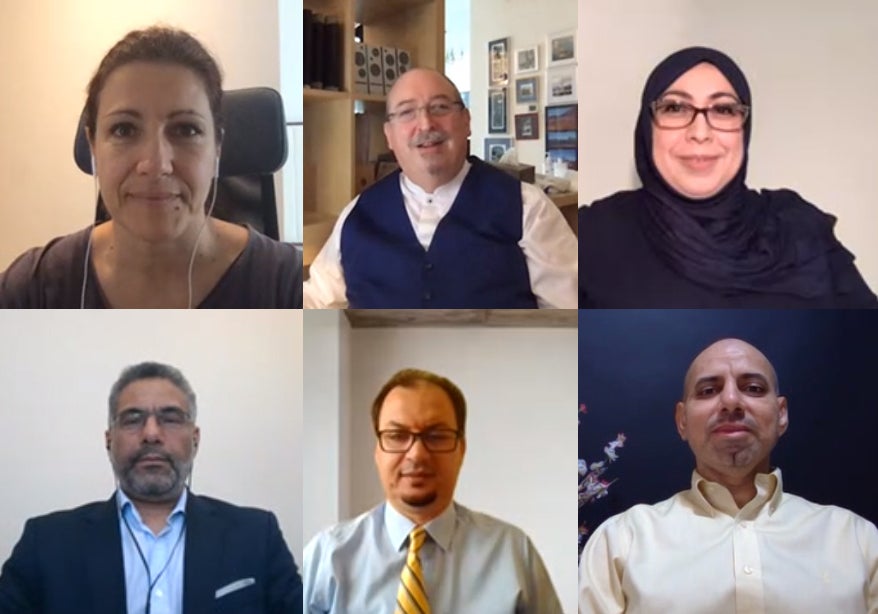
QEERI at HBKU to Lead New Project Focused on Reducing Atmospheric Carbon Dioxide
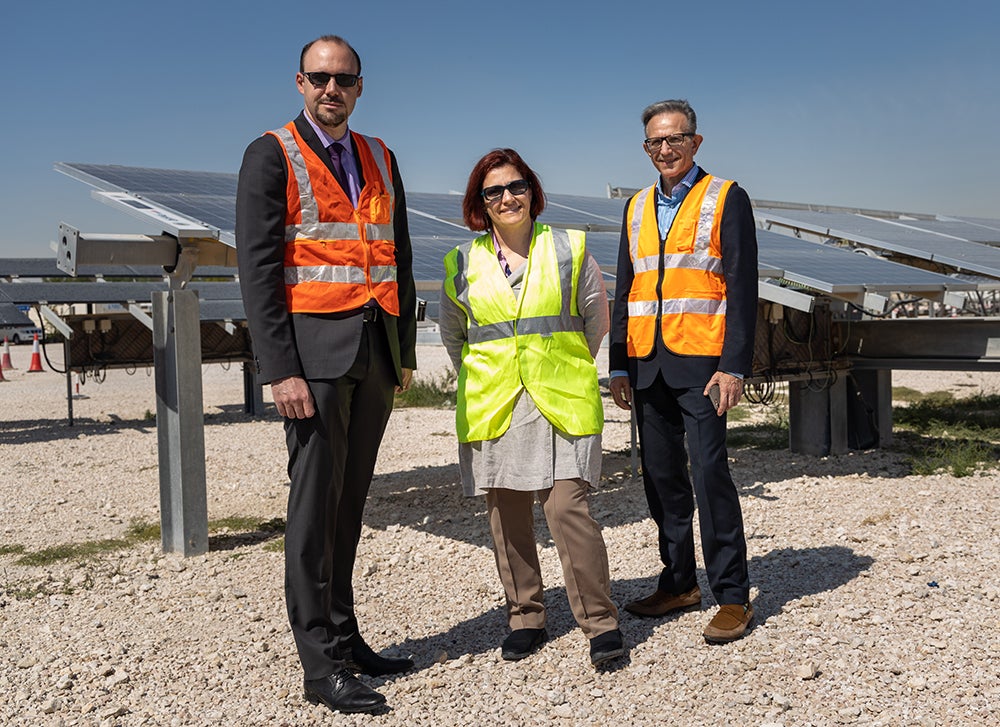
Qatar Environment and Energy Research Institute Providing Key Data for Development of Al Kharsaah 800MWp Photovoltaic Plant
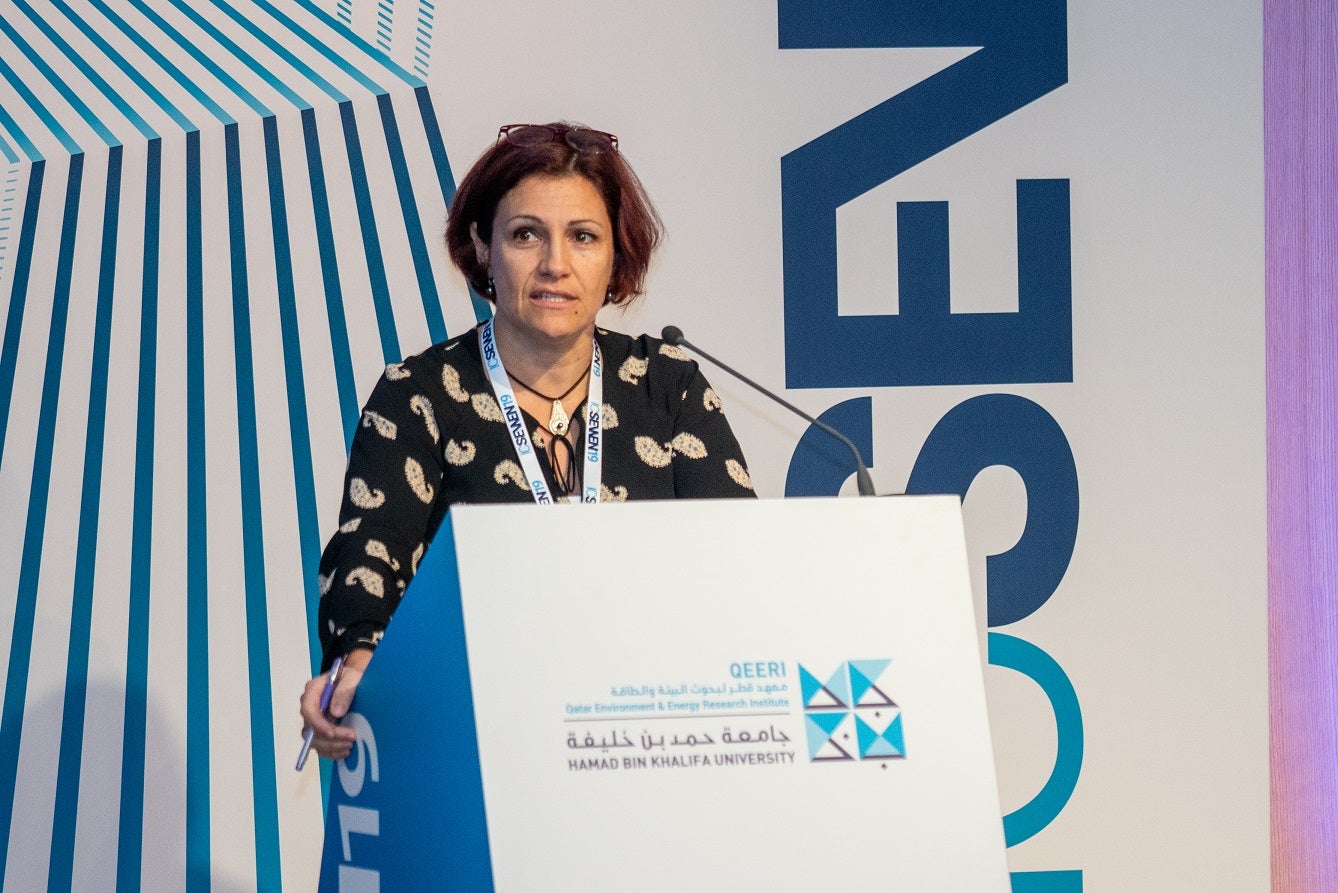
Experts Combine Efforts to Address Climate Challenges at Qatar Environment and Energy Research Institute Conference
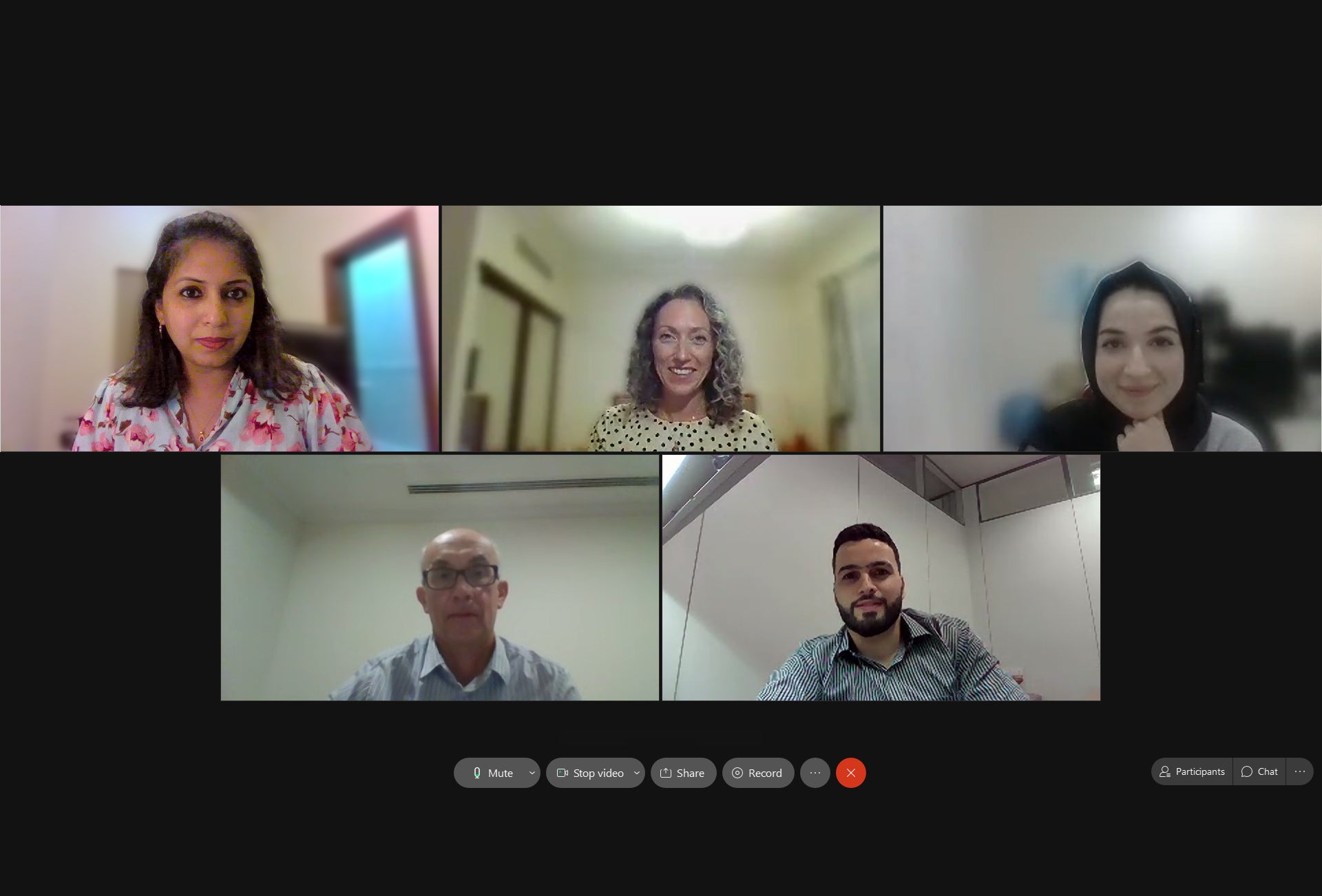
Qatar Environment and Energy Research Institute’s Second Science Majlis Promotes Awareness of Managing Scarce Water Resources
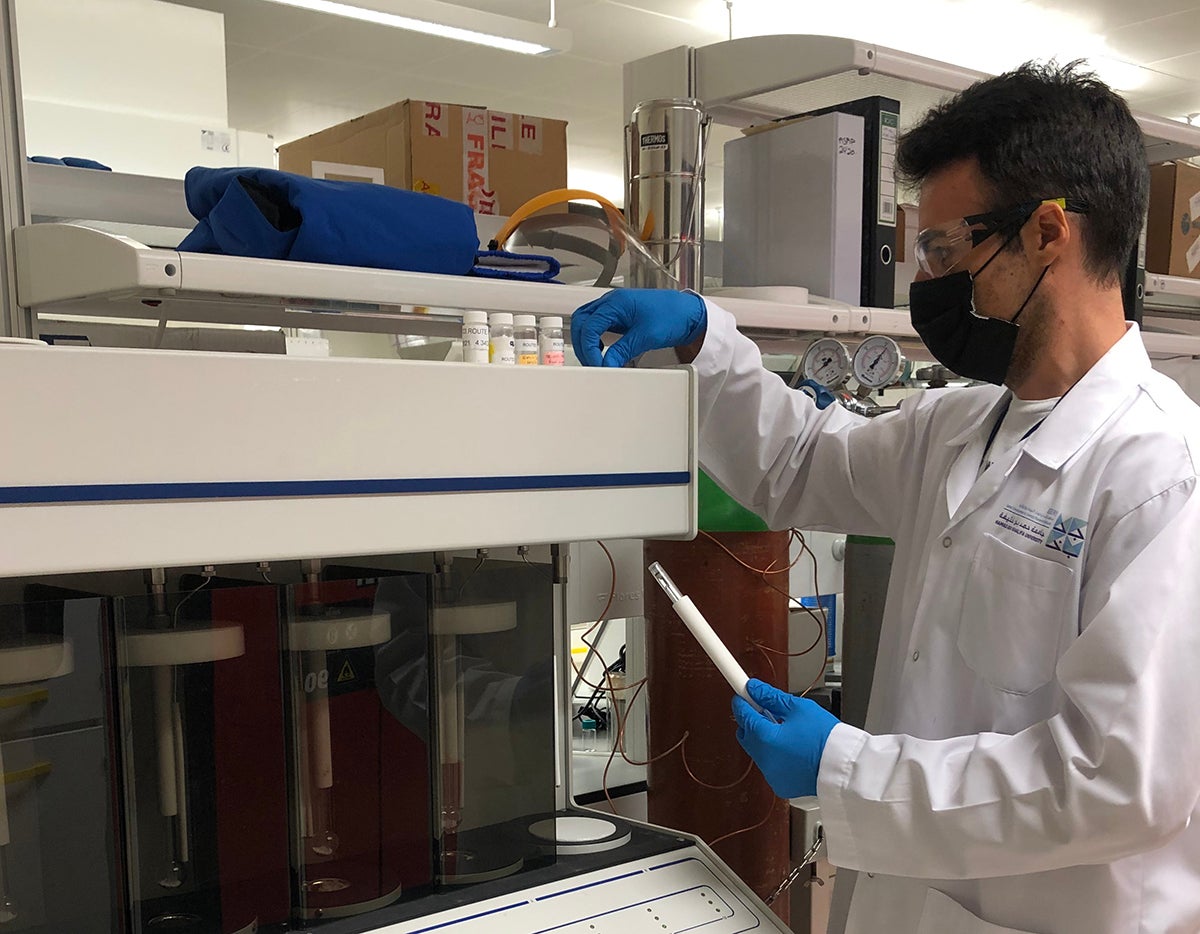
Research and Development Efforts by Qatar Environment and Energy Research Institute Focus on Innovation in Carbon Capture, Utilization, and Storage Technologies
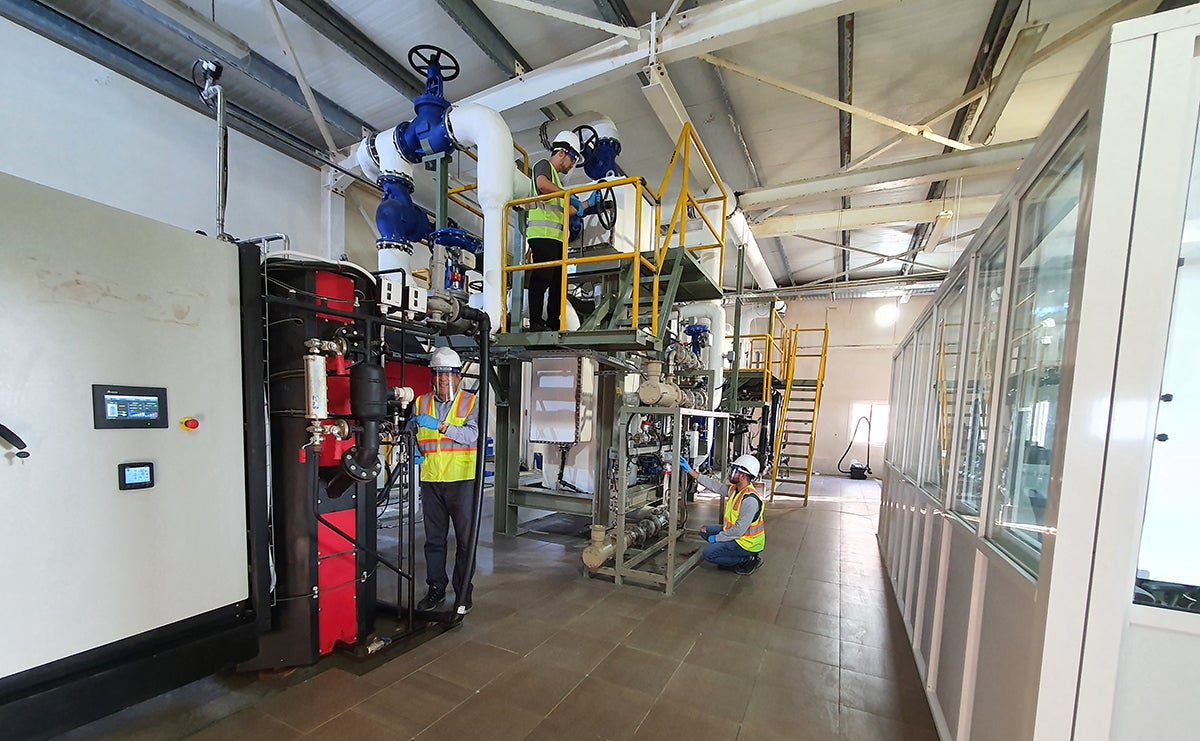
Qatar Environment and Energy Research Institute Develops and Installs MED Seawater Desalination Pilot Plant in Dukhan
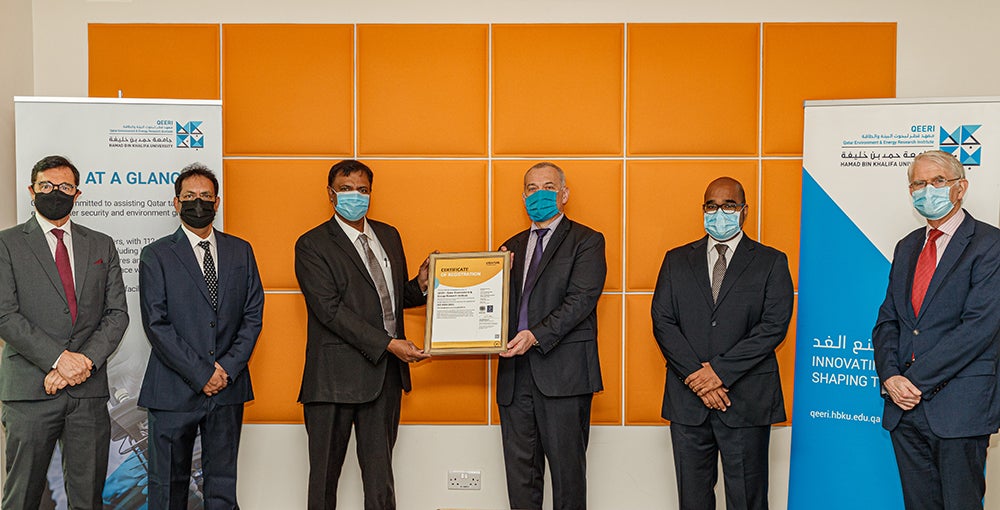
HBKU’s Qatar Environment and Energy Research Institute Awarded ISO Certification for its Integrated Management System
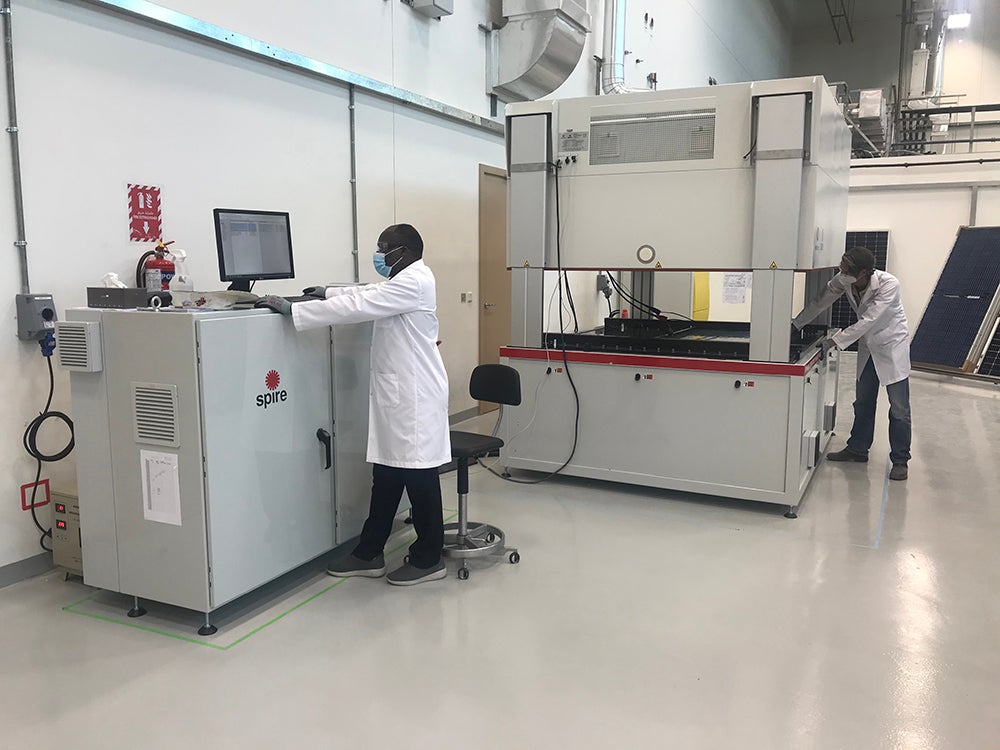
HBKU’s Qatar Environment and Energy Research Institute a Growing Force in Solar Technology Research
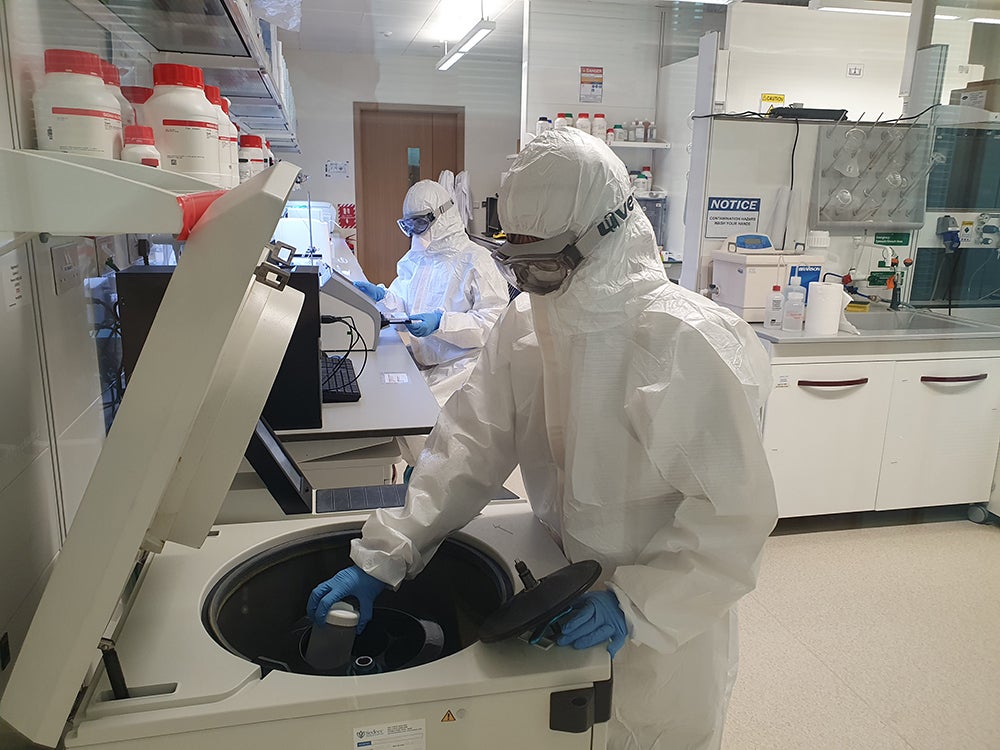
HBKU’s Qatar Environment and Energy Research Institute and Qatar Stakeholders Collaborative Project Aims to Detect COVID-19 in Wastewater
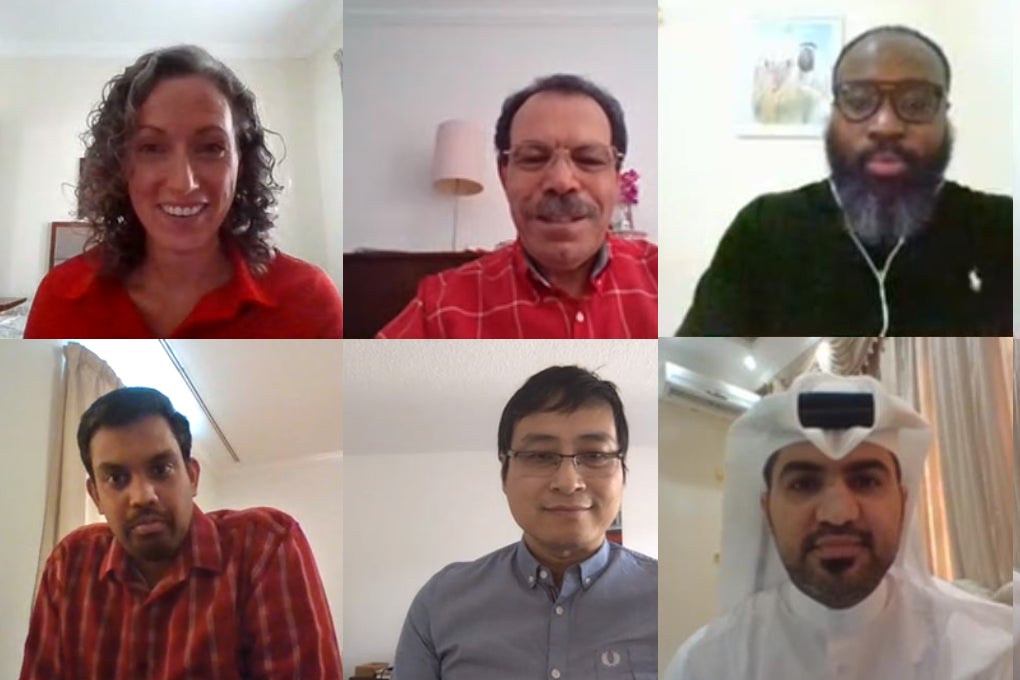
Qatar Environment and Energy Research Institute at HBKU Develops New Technology to Remove Oil from Seawater

QEERI at HBKU to Lead New Project Focused on Reducing Atmospheric Carbon Dioxide

Qatar Environment and Energy Research Institute Providing Key Data for Development of Al Kharsaah 800MWp Photovoltaic Plant

Experts Combine Efforts to Address Climate Challenges at Qatar Environment and Energy Research Institute Conference

Qatar Environment and Energy Research Institute’s Second Science Majlis Promotes Awareness of Managing Scarce Water Resources

Research and Development Efforts by Qatar Environment and Energy Research Institute Focus on Innovation in Carbon Capture, Utilization, and Storage Technologies

Qatar Environment and Energy Research Institute Develops and Installs MED Seawater Desalination Pilot Plant in Dukhan

HBKU’s Qatar Environment and Energy Research Institute Awarded ISO Certification for its Integrated Management System

HBKU’s Qatar Environment and Energy Research Institute a Growing Force in Solar Technology Research

HBKU’s Qatar Environment and Energy Research Institute and Qatar Stakeholders Collaborative Project Aims to Detect COVID-19 in Wastewater

Qatar Environment and Energy Research Institute at HBKU Develops New Technology to Remove Oil from Seawater

QEERI at HBKU to Lead New Project Focused on Reducing Atmospheric Carbon Dioxide

Qatar Environment and Energy Research Institute Providing Key Data for Development of Al Kharsaah 800MWp Photovoltaic Plant

Experts Combine Efforts to Address Climate Challenges at Qatar Environment and Energy Research Institute Conference

Qatar Environment and Energy Research Institute’s Second Science Majlis Promotes Awareness of Managing Scarce Water Resources

Research and Development Efforts by Qatar Environment and Energy Research Institute Focus on Innovation in Carbon Capture, Utilization, and Storage Technologies

Qatar Environment and Energy Research Institute Develops and Installs MED Seawater Desalination Pilot Plant in Dukhan

HBKU’s Qatar Environment and Energy Research Institute Awarded ISO Certification for its Integrated Management System

HBKU’s Qatar Environment and Energy Research Institute a Growing Force in Solar Technology Research

HBKU’s Qatar Environment and Energy Research Institute and Qatar Stakeholders Collaborative Project Aims to Detect COVID-19 in Wastewater

Qatar Environment and Energy Research Institute at HBKU Develops New Technology to Remove Oil from Seawater

QEERI at HBKU to Lead New Project Focused on Reducing Atmospheric Carbon Dioxide

Qatar Environment and Energy Research Institute Providing Key Data for Development of Al Kharsaah 800MWp Photovoltaic Plant

Experts Combine Efforts to Address Climate Challenges at Qatar Environment and Energy Research Institute Conference

Qatar Environment and Energy Research Institute’s Second Science Majlis Promotes Awareness of Managing Scarce Water Resources

Research and Development Efforts by Qatar Environment and Energy Research Institute Focus on Innovation in Carbon Capture, Utilization, and Storage Technologies

Qatar Environment and Energy Research Institute Develops and Installs MED Seawater Desalination Pilot Plant in Dukhan

HBKU’s Qatar Environment and Energy Research Institute Awarded ISO Certification for its Integrated Management System

HBKU’s Qatar Environment and Energy Research Institute a Growing Force in Solar Technology Research

HBKU’s Qatar Environment and Energy Research Institute and Qatar Stakeholders Collaborative Project Aims to Detect COVID-19 in Wastewater

Qatar Environment and Energy Research Institute at HBKU Develops New Technology to Remove Oil from Seawater

QEERI at HBKU to Lead New Project Focused on Reducing Atmospheric Carbon Dioxide

Qatar Environment and Energy Research Institute Providing Key Data for Development of Al Kharsaah 800MWp Photovoltaic Plant

Experts Combine Efforts to Address Climate Challenges at Qatar Environment and Energy Research Institute Conference

Qatar Environment and Energy Research Institute’s Second Science Majlis Promotes Awareness of Managing Scarce Water Resources

Research and Development Efforts by Qatar Environment and Energy Research Institute Focus on Innovation in Carbon Capture, Utilization, and Storage Technologies

Qatar Environment and Energy Research Institute Develops and Installs MED Seawater Desalination Pilot Plant in Dukhan

HBKU’s Qatar Environment and Energy Research Institute Awarded ISO Certification for its Integrated Management System

HBKU’s Qatar Environment and Energy Research Institute a Growing Force in Solar Technology Research

HBKU’s Qatar Environment and Energy Research Institute and Qatar Stakeholders Collaborative Project Aims to Detect COVID-19 in Wastewater

Qatar Environment and Energy Research Institute at HBKU Develops New Technology to Remove Oil from Seawater

QEERI at HBKU to Lead New Project Focused on Reducing Atmospheric Carbon Dioxide

Qatar Environment and Energy Research Institute Providing Key Data for Development of Al Kharsaah 800MWp Photovoltaic Plant

Experts Combine Efforts to Address Climate Challenges at Qatar Environment and Energy Research Institute Conference

Qatar Environment and Energy Research Institute’s Second Science Majlis Promotes Awareness of Managing Scarce Water Resources

Research and Development Efforts by Qatar Environment and Energy Research Institute Focus on Innovation in Carbon Capture, Utilization, and Storage Technologies

Qatar Environment and Energy Research Institute Develops and Installs MED Seawater Desalination Pilot Plant in Dukhan

HBKU’s Qatar Environment and Energy Research Institute Awarded ISO Certification for its Integrated Management System

HBKU’s Qatar Environment and Energy Research Institute a Growing Force in Solar Technology Research

HBKU’s Qatar Environment and Energy Research Institute and Qatar Stakeholders Collaborative Project Aims to Detect COVID-19 in Wastewater

Qatar Environment and Energy Research Institute at HBKU Develops New Technology to Remove Oil from Seawater

QEERI at HBKU to Lead New Project Focused on Reducing Atmospheric Carbon Dioxide

Qatar Environment and Energy Research Institute Providing Key Data for Development of Al Kharsaah 800MWp Photovoltaic Plant

Experts Combine Efforts to Address Climate Challenges at Qatar Environment and Energy Research Institute Conference

Qatar Environment and Energy Research Institute’s Second Science Majlis Promotes Awareness of Managing Scarce Water Resources

Research and Development Efforts by Qatar Environment and Energy Research Institute Focus on Innovation in Carbon Capture, Utilization, and Storage Technologies

Qatar Environment and Energy Research Institute Develops and Installs MED Seawater Desalination Pilot Plant in Dukhan

HBKU’s Qatar Environment and Energy Research Institute Awarded ISO Certification for its Integrated Management System

HBKU’s Qatar Environment and Energy Research Institute a Growing Force in Solar Technology Research

HBKU’s Qatar Environment and Energy Research Institute and Qatar Stakeholders Collaborative Project Aims to Detect COVID-19 in Wastewater

Qatar Environment and Energy Research Institute at HBKU Develops New Technology to Remove Oil from Seawater

QEERI at HBKU to Lead New Project Focused on Reducing Atmospheric Carbon Dioxide

Qatar Environment and Energy Research Institute Providing Key Data for Development of Al Kharsaah 800MWp Photovoltaic Plant

Experts Combine Efforts to Address Climate Challenges at Qatar Environment and Energy Research Institute Conference

Qatar Environment and Energy Research Institute’s Second Science Majlis Promotes Awareness of Managing Scarce Water Resources

Research and Development Efforts by Qatar Environment and Energy Research Institute Focus on Innovation in Carbon Capture, Utilization, and Storage Technologies

Qatar Environment and Energy Research Institute Develops and Installs MED Seawater Desalination Pilot Plant in Dukhan

HBKU’s Qatar Environment and Energy Research Institute Awarded ISO Certification for its Integrated Management System

HBKU’s Qatar Environment and Energy Research Institute a Growing Force in Solar Technology Research

HBKU’s Qatar Environment and Energy Research Institute and Qatar Stakeholders Collaborative Project Aims to Detect COVID-19 in Wastewater

Qatar Environment and Energy Research Institute at HBKU Develops New Technology to Remove Oil from Seawater

QEERI at HBKU to Lead New Project Focused on Reducing Atmospheric Carbon Dioxide

Qatar Environment and Energy Research Institute Providing Key Data for Development of Al Kharsaah 800MWp Photovoltaic Plant

Experts Combine Efforts to Address Climate Challenges at Qatar Environment and Energy Research Institute Conference

Qatar Environment and Energy Research Institute’s Second Science Majlis Promotes Awareness of Managing Scarce Water Resources

Research and Development Efforts by Qatar Environment and Energy Research Institute Focus on Innovation in Carbon Capture, Utilization, and Storage Technologies

Qatar Environment and Energy Research Institute Develops and Installs MED Seawater Desalination Pilot Plant in Dukhan

HBKU’s Qatar Environment and Energy Research Institute Awarded ISO Certification for its Integrated Management System

HBKU’s Qatar Environment and Energy Research Institute a Growing Force in Solar Technology Research

HBKU’s Qatar Environment and Energy Research Institute and Qatar Stakeholders Collaborative Project Aims to Detect COVID-19 in Wastewater

Qatar Environment and Energy Research Institute at HBKU Develops New Technology to Remove Oil from Seawater

QEERI at HBKU to Lead New Project Focused on Reducing Atmospheric Carbon Dioxide

Qatar Environment and Energy Research Institute Providing Key Data for Development of Al Kharsaah 800MWp Photovoltaic Plant

Experts Combine Efforts to Address Climate Challenges at Qatar Environment and Energy Research Institute Conference

Qatar Environment and Energy Research Institute’s Second Science Majlis Promotes Awareness of Managing Scarce Water Resources

Research and Development Efforts by Qatar Environment and Energy Research Institute Focus on Innovation in Carbon Capture, Utilization, and Storage Technologies

Qatar Environment and Energy Research Institute Develops and Installs MED Seawater Desalination Pilot Plant in Dukhan

HBKU’s Qatar Environment and Energy Research Institute Awarded ISO Certification for its Integrated Management System

HBKU’s Qatar Environment and Energy Research Institute a Growing Force in Solar Technology Research

HBKU’s Qatar Environment and Energy Research Institute and Qatar Stakeholders Collaborative Project Aims to Detect COVID-19 in Wastewater

Qatar Environment and Energy Research Institute at HBKU Develops New Technology to Remove Oil from Seawater

QEERI at HBKU to Lead New Project Focused on Reducing Atmospheric Carbon Dioxide

Qatar Environment and Energy Research Institute Providing Key Data for Development of Al Kharsaah 800MWp Photovoltaic Plant

Experts Combine Efforts to Address Climate Challenges at Qatar Environment and Energy Research Institute Conference

Qatar Environment and Energy Research Institute’s Second Science Majlis Promotes Awareness of Managing Scarce Water Resources

Research and Development Efforts by Qatar Environment and Energy Research Institute Focus on Innovation in Carbon Capture, Utilization, and Storage Technologies

Qatar Environment and Energy Research Institute Develops and Installs MED Seawater Desalination Pilot Plant in Dukhan

HBKU’s Qatar Environment and Energy Research Institute Awarded ISO Certification for its Integrated Management System

HBKU’s Qatar Environment and Energy Research Institute a Growing Force in Solar Technology Research

HBKU’s Qatar Environment and Energy Research Institute and Qatar Stakeholders Collaborative Project Aims to Detect COVID-19 in Wastewater

Qatar Environment and Energy Research Institute at HBKU Develops New Technology to Remove Oil from Seawater

QEERI at HBKU to Lead New Project Focused on Reducing Atmospheric Carbon Dioxide

Qatar Environment and Energy Research Institute Providing Key Data for Development of Al Kharsaah 800MWp Photovoltaic Plant

Experts Combine Efforts to Address Climate Challenges at Qatar Environment and Energy Research Institute Conference

Qatar Environment and Energy Research Institute’s Second Science Majlis Promotes Awareness of Managing Scarce Water Resources

Research and Development Efforts by Qatar Environment and Energy Research Institute Focus on Innovation in Carbon Capture, Utilization, and Storage Technologies

Qatar Environment and Energy Research Institute Develops and Installs MED Seawater Desalination Pilot Plant in Dukhan

HBKU’s Qatar Environment and Energy Research Institute Awarded ISO Certification for its Integrated Management System

HBKU’s Qatar Environment and Energy Research Institute a Growing Force in Solar Technology Research

HBKU’s Qatar Environment and Energy Research Institute and Qatar Stakeholders Collaborative Project Aims to Detect COVID-19 in Wastewater

Qatar Environment and Energy Research Institute at HBKU Develops New Technology to Remove Oil from Seawater

QEERI at HBKU to Lead New Project Focused on Reducing Atmospheric Carbon Dioxide

Qatar Environment and Energy Research Institute Providing Key Data for Development of Al Kharsaah 800MWp Photovoltaic Plant

Experts Combine Efforts to Address Climate Challenges at Qatar Environment and Energy Research Institute Conference

Qatar Environment and Energy Research Institute’s Second Science Majlis Promotes Awareness of Managing Scarce Water Resources

Research and Development Efforts by Qatar Environment and Energy Research Institute Focus on Innovation in Carbon Capture, Utilization, and Storage Technologies

Qatar Environment and Energy Research Institute Develops and Installs MED Seawater Desalination Pilot Plant in Dukhan

HBKU’s Qatar Environment and Energy Research Institute Awarded ISO Certification for its Integrated Management System

HBKU’s Qatar Environment and Energy Research Institute a Growing Force in Solar Technology Research

HBKU’s Qatar Environment and Energy Research Institute and Qatar Stakeholders Collaborative Project Aims to Detect COVID-19 in Wastewater

Qatar Environment and Energy Research Institute at HBKU Develops New Technology to Remove Oil from Seawater

QEERI at HBKU to Lead New Project Focused on Reducing Atmospheric Carbon Dioxide

Qatar Environment and Energy Research Institute Providing Key Data for Development of Al Kharsaah 800MWp Photovoltaic Plant

Experts Combine Efforts to Address Climate Challenges at Qatar Environment and Energy Research Institute Conference

Qatar Environment and Energy Research Institute’s Second Science Majlis Promotes Awareness of Managing Scarce Water Resources

Research and Development Efforts by Qatar Environment and Energy Research Institute Focus on Innovation in Carbon Capture, Utilization, and Storage Technologies

Qatar Environment and Energy Research Institute Develops and Installs MED Seawater Desalination Pilot Plant in Dukhan

HBKU’s Qatar Environment and Energy Research Institute Awarded ISO Certification for its Integrated Management System

HBKU’s Qatar Environment and Energy Research Institute a Growing Force in Solar Technology Research

HBKU’s Qatar Environment and Energy Research Institute and Qatar Stakeholders Collaborative Project Aims to Detect COVID-19 in Wastewater

Qatar Environment and Energy Research Institute at HBKU Develops New Technology to Remove Oil from Seawater

QEERI at HBKU to Lead New Project Focused on Reducing Atmospheric Carbon Dioxide

Qatar Environment and Energy Research Institute Providing Key Data for Development of Al Kharsaah 800MWp Photovoltaic Plant

Experts Combine Efforts to Address Climate Challenges at Qatar Environment and Energy Research Institute Conference

Qatar Environment and Energy Research Institute’s Second Science Majlis Promotes Awareness of Managing Scarce Water Resources

Research and Development Efforts by Qatar Environment and Energy Research Institute Focus on Innovation in Carbon Capture, Utilization, and Storage Technologies

Qatar Environment and Energy Research Institute Develops and Installs MED Seawater Desalination Pilot Plant in Dukhan

HBKU’s Qatar Environment and Energy Research Institute Awarded ISO Certification for its Integrated Management System

HBKU’s Qatar Environment and Energy Research Institute a Growing Force in Solar Technology Research

HBKU’s Qatar Environment and Energy Research Institute and Qatar Stakeholders Collaborative Project Aims to Detect COVID-19 in Wastewater

Qatar Environment and Energy Research Institute at HBKU Develops New Technology to Remove Oil from Seawater

QEERI at HBKU to Lead New Project Focused on Reducing Atmospheric Carbon Dioxide

Qatar Environment and Energy Research Institute Providing Key Data for Development of Al Kharsaah 800MWp Photovoltaic Plant

Experts Combine Efforts to Address Climate Challenges at Qatar Environment and Energy Research Institute Conference

Qatar Environment and Energy Research Institute’s Second Science Majlis Promotes Awareness of Managing Scarce Water Resources

Research and Development Efforts by Qatar Environment and Energy Research Institute Focus on Innovation in Carbon Capture, Utilization, and Storage Technologies

Qatar Environment and Energy Research Institute Develops and Installs MED Seawater Desalination Pilot Plant in Dukhan

HBKU’s Qatar Environment and Energy Research Institute Awarded ISO Certification for its Integrated Management System

HBKU’s Qatar Environment and Energy Research Institute a Growing Force in Solar Technology Research

HBKU’s Qatar Environment and Energy Research Institute and Qatar Stakeholders Collaborative Project Aims to Detect COVID-19 in Wastewater

Qatar Environment and Energy Research Institute at HBKU Develops New Technology to Remove Oil from Seawater

QEERI at HBKU to Lead New Project Focused on Reducing Atmospheric Carbon Dioxide

Qatar Environment and Energy Research Institute Providing Key Data for Development of Al Kharsaah 800MWp Photovoltaic Plant

Experts Combine Efforts to Address Climate Challenges at Qatar Environment and Energy Research Institute Conference

Qatar Environment and Energy Research Institute’s Second Science Majlis Promotes Awareness of Managing Scarce Water Resources

Research and Development Efforts by Qatar Environment and Energy Research Institute Focus on Innovation in Carbon Capture, Utilization, and Storage Technologies

Qatar Environment and Energy Research Institute Develops and Installs MED Seawater Desalination Pilot Plant in Dukhan

HBKU’s Qatar Environment and Energy Research Institute Awarded ISO Certification for its Integrated Management System

HBKU’s Qatar Environment and Energy Research Institute a Growing Force in Solar Technology Research

HBKU’s Qatar Environment and Energy Research Institute and Qatar Stakeholders Collaborative Project Aims to Detect COVID-19 in Wastewater

Qatar Environment and Energy Research Institute at HBKU Develops New Technology to Remove Oil from Seawater

QEERI at HBKU to Lead New Project Focused on Reducing Atmospheric Carbon Dioxide

Qatar Environment and Energy Research Institute Providing Key Data for Development of Al Kharsaah 800MWp Photovoltaic Plant

Experts Combine Efforts to Address Climate Challenges at Qatar Environment and Energy Research Institute Conference

Qatar Environment and Energy Research Institute’s Second Science Majlis Promotes Awareness of Managing Scarce Water Resources

Research and Development Efforts by Qatar Environment and Energy Research Institute Focus on Innovation in Carbon Capture, Utilization, and Storage Technologies

Qatar Environment and Energy Research Institute Develops and Installs MED Seawater Desalination Pilot Plant in Dukhan

HBKU’s Qatar Environment and Energy Research Institute Awarded ISO Certification for its Integrated Management System

HBKU’s Qatar Environment and Energy Research Institute a Growing Force in Solar Technology Research

HBKU’s Qatar Environment and Energy Research Institute and Qatar Stakeholders Collaborative Project Aims to Detect COVID-19 in Wastewater

Qatar Environment and Energy Research Institute at HBKU Develops New Technology to Remove Oil from Seawater

QEERI at HBKU to Lead New Project Focused on Reducing Atmospheric Carbon Dioxide

Qatar Environment and Energy Research Institute Providing Key Data for Development of Al Kharsaah 800MWp Photovoltaic Plant

Experts Combine Efforts to Address Climate Challenges at Qatar Environment and Energy Research Institute Conference

Qatar Environment and Energy Research Institute’s Second Science Majlis Promotes Awareness of Managing Scarce Water Resources

Research and Development Efforts by Qatar Environment and Energy Research Institute Focus on Innovation in Carbon Capture, Utilization, and Storage Technologies

Qatar Environment and Energy Research Institute Develops and Installs MED Seawater Desalination Pilot Plant in Dukhan

HBKU’s Qatar Environment and Energy Research Institute Awarded ISO Certification for its Integrated Management System

HBKU’s Qatar Environment and Energy Research Institute a Growing Force in Solar Technology Research

HBKU’s Qatar Environment and Energy Research Institute and Qatar Stakeholders Collaborative Project Aims to Detect COVID-19 in Wastewater

Qatar Environment and Energy Research Institute at HBKU Develops New Technology to Remove Oil from Seawater

QEERI at HBKU to Lead New Project Focused on Reducing Atmospheric Carbon Dioxide

Qatar Environment and Energy Research Institute Providing Key Data for Development of Al Kharsaah 800MWp Photovoltaic Plant

Experts Combine Efforts to Address Climate Challenges at Qatar Environment and Energy Research Institute Conference

Qatar Environment and Energy Research Institute’s Second Science Majlis Promotes Awareness of Managing Scarce Water Resources

Research and Development Efforts by Qatar Environment and Energy Research Institute Focus on Innovation in Carbon Capture, Utilization, and Storage Technologies

Qatar Environment and Energy Research Institute Develops and Installs MED Seawater Desalination Pilot Plant in Dukhan

HBKU’s Qatar Environment and Energy Research Institute Awarded ISO Certification for its Integrated Management System

HBKU’s Qatar Environment and Energy Research Institute a Growing Force in Solar Technology Research

HBKU’s Qatar Environment and Energy Research Institute and Qatar Stakeholders Collaborative Project Aims to Detect COVID-19 in Wastewater

Qatar Environment and Energy Research Institute at HBKU Develops New Technology to Remove Oil from Seawater

QEERI at HBKU to Lead New Project Focused on Reducing Atmospheric Carbon Dioxide

Qatar Environment and Energy Research Institute Providing Key Data for Development of Al Kharsaah 800MWp Photovoltaic Plant

Experts Combine Efforts to Address Climate Challenges at Qatar Environment and Energy Research Institute Conference

Qatar Environment and Energy Research Institute’s Second Science Majlis Promotes Awareness of Managing Scarce Water Resources

Research and Development Efforts by Qatar Environment and Energy Research Institute Focus on Innovation in Carbon Capture, Utilization, and Storage Technologies

Qatar Environment and Energy Research Institute Develops and Installs MED Seawater Desalination Pilot Plant in Dukhan

HBKU’s Qatar Environment and Energy Research Institute Awarded ISO Certification for its Integrated Management System

HBKU’s Qatar Environment and Energy Research Institute a Growing Force in Solar Technology Research

HBKU’s Qatar Environment and Energy Research Institute and Qatar Stakeholders Collaborative Project Aims to Detect COVID-19 in Wastewater

Qatar Environment and Energy Research Institute at HBKU Develops New Technology to Remove Oil from Seawater

QEERI at HBKU to Lead New Project Focused on Reducing Atmospheric Carbon Dioxide

Qatar Environment and Energy Research Institute Providing Key Data for Development of Al Kharsaah 800MWp Photovoltaic Plant

Experts Combine Efforts to Address Climate Challenges at Qatar Environment and Energy Research Institute Conference

Qatar Environment and Energy Research Institute’s Second Science Majlis Promotes Awareness of Managing Scarce Water Resources

Research and Development Efforts by Qatar Environment and Energy Research Institute Focus on Innovation in Carbon Capture, Utilization, and Storage Technologies

Qatar Environment and Energy Research Institute Develops and Installs MED Seawater Desalination Pilot Plant in Dukhan

HBKU’s Qatar Environment and Energy Research Institute Awarded ISO Certification for its Integrated Management System

HBKU’s Qatar Environment and Energy Research Institute a Growing Force in Solar Technology Research

HBKU’s Qatar Environment and Energy Research Institute and Qatar Stakeholders Collaborative Project Aims to Detect COVID-19 in Wastewater

Qatar Environment and Energy Research Institute at HBKU Develops New Technology to Remove Oil from Seawater

QEERI at HBKU to Lead New Project Focused on Reducing Atmospheric Carbon Dioxide

Qatar Environment and Energy Research Institute Providing Key Data for Development of Al Kharsaah 800MWp Photovoltaic Plant

Experts Combine Efforts to Address Climate Challenges at Qatar Environment and Energy Research Institute Conference

Qatar Environment and Energy Research Institute’s Second Science Majlis Promotes Awareness of Managing Scarce Water Resources

Research and Development Efforts by Qatar Environment and Energy Research Institute Focus on Innovation in Carbon Capture, Utilization, and Storage Technologies

Qatar Environment and Energy Research Institute Develops and Installs MED Seawater Desalination Pilot Plant in Dukhan

HBKU’s Qatar Environment and Energy Research Institute Awarded ISO Certification for its Integrated Management System

HBKU’s Qatar Environment and Energy Research Institute a Growing Force in Solar Technology Research

HBKU’s Qatar Environment and Energy Research Institute and Qatar Stakeholders Collaborative Project Aims to Detect COVID-19 in Wastewater

Qatar Environment and Energy Research Institute at HBKU Develops New Technology to Remove Oil from Seawater

QEERI at HBKU to Lead New Project Focused on Reducing Atmospheric Carbon Dioxide

Qatar Environment and Energy Research Institute Providing Key Data for Development of Al Kharsaah 800MWp Photovoltaic Plant

Experts Combine Efforts to Address Climate Challenges at Qatar Environment and Energy Research Institute Conference

Qatar Environment and Energy Research Institute’s Second Science Majlis Promotes Awareness of Managing Scarce Water Resources

Research and Development Efforts by Qatar Environment and Energy Research Institute Focus on Innovation in Carbon Capture, Utilization, and Storage Technologies

Qatar Environment and Energy Research Institute Develops and Installs MED Seawater Desalination Pilot Plant in Dukhan

HBKU’s Qatar Environment and Energy Research Institute Awarded ISO Certification for its Integrated Management System

HBKU’s Qatar Environment and Energy Research Institute a Growing Force in Solar Technology Research

HBKU’s Qatar Environment and Energy Research Institute and Qatar Stakeholders Collaborative Project Aims to Detect COVID-19 in Wastewater

Qatar Environment and Energy Research Institute at HBKU Develops New Technology to Remove Oil from Seawater

QEERI at HBKU to Lead New Project Focused on Reducing Atmospheric Carbon Dioxide

Qatar Environment and Energy Research Institute Providing Key Data for Development of Al Kharsaah 800MWp Photovoltaic Plant

Experts Combine Efforts to Address Climate Challenges at Qatar Environment and Energy Research Institute Conference

Qatar Environment and Energy Research Institute’s Second Science Majlis Promotes Awareness of Managing Scarce Water Resources

Research and Development Efforts by Qatar Environment and Energy Research Institute Focus on Innovation in Carbon Capture, Utilization, and Storage Technologies

Qatar Environment and Energy Research Institute Develops and Installs MED Seawater Desalination Pilot Plant in Dukhan

HBKU’s Qatar Environment and Energy Research Institute Awarded ISO Certification for its Integrated Management System

HBKU’s Qatar Environment and Energy Research Institute a Growing Force in Solar Technology Research

HBKU’s Qatar Environment and Energy Research Institute and Qatar Stakeholders Collaborative Project Aims to Detect COVID-19 in Wastewater

Qatar Environment and Energy Research Institute at HBKU Develops New Technology to Remove Oil from Seawater

QEERI at HBKU to Lead New Project Focused on Reducing Atmospheric Carbon Dioxide

Qatar Environment and Energy Research Institute Providing Key Data for Development of Al Kharsaah 800MWp Photovoltaic Plant

Experts Combine Efforts to Address Climate Challenges at Qatar Environment and Energy Research Institute Conference

Qatar Environment and Energy Research Institute’s Second Science Majlis Promotes Awareness of Managing Scarce Water Resources

Research and Development Efforts by Qatar Environment and Energy Research Institute Focus on Innovation in Carbon Capture, Utilization, and Storage Technologies

Qatar Environment and Energy Research Institute Develops and Installs MED Seawater Desalination Pilot Plant in Dukhan

HBKU’s Qatar Environment and Energy Research Institute Awarded ISO Certification for its Integrated Management System

HBKU’s Qatar Environment and Energy Research Institute a Growing Force in Solar Technology Research

HBKU’s Qatar Environment and Energy Research Institute and Qatar Stakeholders Collaborative Project Aims to Detect COVID-19 in Wastewater

Qatar Environment and Energy Research Institute at HBKU Develops New Technology to Remove Oil from Seawater

QEERI at HBKU to Lead New Project Focused on Reducing Atmospheric Carbon Dioxide

Qatar Environment and Energy Research Institute Providing Key Data for Development of Al Kharsaah 800MWp Photovoltaic Plant

Experts Combine Efforts to Address Climate Challenges at Qatar Environment and Energy Research Institute Conference

Qatar Environment and Energy Research Institute’s Second Science Majlis Promotes Awareness of Managing Scarce Water Resources

Research and Development Efforts by Qatar Environment and Energy Research Institute Focus on Innovation in Carbon Capture, Utilization, and Storage Technologies

Qatar Environment and Energy Research Institute Develops and Installs MED Seawater Desalination Pilot Plant in Dukhan

HBKU’s Qatar Environment and Energy Research Institute Awarded ISO Certification for its Integrated Management System

HBKU’s Qatar Environment and Energy Research Institute a Growing Force in Solar Technology Research

HBKU’s Qatar Environment and Energy Research Institute and Qatar Stakeholders Collaborative Project Aims to Detect COVID-19 in Wastewater

Qatar Environment and Energy Research Institute at HBKU Develops New Technology to Remove Oil from Seawater

QEERI at HBKU to Lead New Project Focused on Reducing Atmospheric Carbon Dioxide

Qatar Environment and Energy Research Institute Providing Key Data for Development of Al Kharsaah 800MWp Photovoltaic Plant

Experts Combine Efforts to Address Climate Challenges at Qatar Environment and Energy Research Institute Conference

Qatar Environment and Energy Research Institute’s Second Science Majlis Promotes Awareness of Managing Scarce Water Resources

Research and Development Efforts by Qatar Environment and Energy Research Institute Focus on Innovation in Carbon Capture, Utilization, and Storage Technologies

Qatar Environment and Energy Research Institute Develops and Installs MED Seawater Desalination Pilot Plant in Dukhan

HBKU’s Qatar Environment and Energy Research Institute Awarded ISO Certification for its Integrated Management System

HBKU’s Qatar Environment and Energy Research Institute a Growing Force in Solar Technology Research

HBKU’s Qatar Environment and Energy Research Institute and Qatar Stakeholders Collaborative Project Aims to Detect COVID-19 in Wastewater

Qatar Environment and Energy Research Institute at HBKU Develops New Technology to Remove Oil from Seawater

QEERI at HBKU to Lead New Project Focused on Reducing Atmospheric Carbon Dioxide

Qatar Environment and Energy Research Institute Providing Key Data for Development of Al Kharsaah 800MWp Photovoltaic Plant

Experts Combine Efforts to Address Climate Challenges at Qatar Environment and Energy Research Institute Conference

Qatar Environment and Energy Research Institute’s Second Science Majlis Promotes Awareness of Managing Scarce Water Resources

Research and Development Efforts by Qatar Environment and Energy Research Institute Focus on Innovation in Carbon Capture, Utilization, and Storage Technologies

Qatar Environment and Energy Research Institute Develops and Installs MED Seawater Desalination Pilot Plant in Dukhan

HBKU’s Qatar Environment and Energy Research Institute Awarded ISO Certification for its Integrated Management System

HBKU’s Qatar Environment and Energy Research Institute a Growing Force in Solar Technology Research

HBKU’s Qatar Environment and Energy Research Institute and Qatar Stakeholders Collaborative Project Aims to Detect COVID-19 in Wastewater

Qatar Environment and Energy Research Institute at HBKU Develops New Technology to Remove Oil from Seawater

QEERI at HBKU to Lead New Project Focused on Reducing Atmospheric Carbon Dioxide

Qatar Environment and Energy Research Institute Providing Key Data for Development of Al Kharsaah 800MWp Photovoltaic Plant

Experts Combine Efforts to Address Climate Challenges at Qatar Environment and Energy Research Institute Conference

Qatar Environment and Energy Research Institute’s Second Science Majlis Promotes Awareness of Managing Scarce Water Resources

Research and Development Efforts by Qatar Environment and Energy Research Institute Focus on Innovation in Carbon Capture, Utilization, and Storage Technologies

Qatar Environment and Energy Research Institute Develops and Installs MED Seawater Desalination Pilot Plant in Dukhan

HBKU’s Qatar Environment and Energy Research Institute Awarded ISO Certification for its Integrated Management System

HBKU’s Qatar Environment and Energy Research Institute a Growing Force in Solar Technology Research

HBKU’s Qatar Environment and Energy Research Institute and Qatar Stakeholders Collaborative Project Aims to Detect COVID-19 in Wastewater

Qatar Environment and Energy Research Institute at HBKU Develops New Technology to Remove Oil from Seawater

QEERI at HBKU to Lead New Project Focused on Reducing Atmospheric Carbon Dioxide

Qatar Environment and Energy Research Institute Providing Key Data for Development of Al Kharsaah 800MWp Photovoltaic Plant

Experts Combine Efforts to Address Climate Challenges at Qatar Environment and Energy Research Institute Conference

Qatar Environment and Energy Research Institute’s Second Science Majlis Promotes Awareness of Managing Scarce Water Resources

Research and Development Efforts by Qatar Environment and Energy Research Institute Focus on Innovation in Carbon Capture, Utilization, and Storage Technologies

Qatar Environment and Energy Research Institute Develops and Installs MED Seawater Desalination Pilot Plant in Dukhan

HBKU’s Qatar Environment and Energy Research Institute Awarded ISO Certification for its Integrated Management System

HBKU’s Qatar Environment and Energy Research Institute a Growing Force in Solar Technology Research

HBKU’s Qatar Environment and Energy Research Institute and Qatar Stakeholders Collaborative Project Aims to Detect COVID-19 in Wastewater

Qatar Environment and Energy Research Institute at HBKU Develops New Technology to Remove Oil from Seawater

QEERI at HBKU to Lead New Project Focused on Reducing Atmospheric Carbon Dioxide

Qatar Environment and Energy Research Institute Providing Key Data for Development of Al Kharsaah 800MWp Photovoltaic Plant

Experts Combine Efforts to Address Climate Challenges at Qatar Environment and Energy Research Institute Conference

Qatar Environment and Energy Research Institute’s Second Science Majlis Promotes Awareness of Managing Scarce Water Resources

Research and Development Efforts by Qatar Environment and Energy Research Institute Focus on Innovation in Carbon Capture, Utilization, and Storage Technologies

Qatar Environment and Energy Research Institute Develops and Installs MED Seawater Desalination Pilot Plant in Dukhan

HBKU’s Qatar Environment and Energy Research Institute Awarded ISO Certification for its Integrated Management System

HBKU’s Qatar Environment and Energy Research Institute a Growing Force in Solar Technology Research

HBKU’s Qatar Environment and Energy Research Institute and Qatar Stakeholders Collaborative Project Aims to Detect COVID-19 in Wastewater

Qatar Environment and Energy Research Institute at HBKU Develops New Technology to Remove Oil from Seawater

QEERI at HBKU to Lead New Project Focused on Reducing Atmospheric Carbon Dioxide

Qatar Environment and Energy Research Institute Providing Key Data for Development of Al Kharsaah 800MWp Photovoltaic Plant

Experts Combine Efforts to Address Climate Challenges at Qatar Environment and Energy Research Institute Conference

Qatar Environment and Energy Research Institute’s Second Science Majlis Promotes Awareness of Managing Scarce Water Resources

Research and Development Efforts by Qatar Environment and Energy Research Institute Focus on Innovation in Carbon Capture, Utilization, and Storage Technologies

Qatar Environment and Energy Research Institute Develops and Installs MED Seawater Desalination Pilot Plant in Dukhan

HBKU’s Qatar Environment and Energy Research Institute Awarded ISO Certification for its Integrated Management System

HBKU’s Qatar Environment and Energy Research Institute a Growing Force in Solar Technology Research

HBKU’s Qatar Environment and Energy Research Institute and Qatar Stakeholders Collaborative Project Aims to Detect COVID-19 in Wastewater

Qatar Environment and Energy Research Institute at HBKU Develops New Technology to Remove Oil from Seawater

QEERI at HBKU to Lead New Project Focused on Reducing Atmospheric Carbon Dioxide

Qatar Environment and Energy Research Institute Providing Key Data for Development of Al Kharsaah 800MWp Photovoltaic Plant

Experts Combine Efforts to Address Climate Challenges at Qatar Environment and Energy Research Institute Conference

Qatar Environment and Energy Research Institute’s Second Science Majlis Promotes Awareness of Managing Scarce Water Resources

Research and Development Efforts by Qatar Environment and Energy Research Institute Focus on Innovation in Carbon Capture, Utilization, and Storage Technologies

Qatar Environment and Energy Research Institute Develops and Installs MED Seawater Desalination Pilot Plant in Dukhan

HBKU’s Qatar Environment and Energy Research Institute Awarded ISO Certification for its Integrated Management System

HBKU’s Qatar Environment and Energy Research Institute a Growing Force in Solar Technology Research

HBKU’s Qatar Environment and Energy Research Institute and Qatar Stakeholders Collaborative Project Aims to Detect COVID-19 in Wastewater

Qatar Environment and Energy Research Institute at HBKU Develops New Technology to Remove Oil from Seawater

QEERI at HBKU to Lead New Project Focused on Reducing Atmospheric Carbon Dioxide

Qatar Environment and Energy Research Institute Providing Key Data for Development of Al Kharsaah 800MWp Photovoltaic Plant

Experts Combine Efforts to Address Climate Challenges at Qatar Environment and Energy Research Institute Conference

Qatar Environment and Energy Research Institute’s Second Science Majlis Promotes Awareness of Managing Scarce Water Resources

Research and Development Efforts by Qatar Environment and Energy Research Institute Focus on Innovation in Carbon Capture, Utilization, and Storage Technologies

Qatar Environment and Energy Research Institute Develops and Installs MED Seawater Desalination Pilot Plant in Dukhan

HBKU’s Qatar Environment and Energy Research Institute Awarded ISO Certification for its Integrated Management System

HBKU’s Qatar Environment and Energy Research Institute a Growing Force in Solar Technology Research

HBKU’s Qatar Environment and Energy Research Institute and Qatar Stakeholders Collaborative Project Aims to Detect COVID-19 in Wastewater

Qatar Environment and Energy Research Institute at HBKU Develops New Technology to Remove Oil from Seawater

QEERI at HBKU to Lead New Project Focused on Reducing Atmospheric Carbon Dioxide

Qatar Environment and Energy Research Institute Providing Key Data for Development of Al Kharsaah 800MWp Photovoltaic Plant

Experts Combine Efforts to Address Climate Challenges at Qatar Environment and Energy Research Institute Conference

Qatar Environment and Energy Research Institute’s Second Science Majlis Promotes Awareness of Managing Scarce Water Resources

Research and Development Efforts by Qatar Environment and Energy Research Institute Focus on Innovation in Carbon Capture, Utilization, and Storage Technologies

Qatar Environment and Energy Research Institute Develops and Installs MED Seawater Desalination Pilot Plant in Dukhan

HBKU’s Qatar Environment and Energy Research Institute Awarded ISO Certification for its Integrated Management System

HBKU’s Qatar Environment and Energy Research Institute a Growing Force in Solar Technology Research

HBKU’s Qatar Environment and Energy Research Institute and Qatar Stakeholders Collaborative Project Aims to Detect COVID-19 in Wastewater

Qatar Environment and Energy Research Institute at HBKU Develops New Technology to Remove Oil from Seawater

QEERI at HBKU to Lead New Project Focused on Reducing Atmospheric Carbon Dioxide

Qatar Environment and Energy Research Institute Providing Key Data for Development of Al Kharsaah 800MWp Photovoltaic Plant

Experts Combine Efforts to Address Climate Challenges at Qatar Environment and Energy Research Institute Conference

Qatar Environment and Energy Research Institute’s Second Science Majlis Promotes Awareness of Managing Scarce Water Resources

Research and Development Efforts by Qatar Environment and Energy Research Institute Focus on Innovation in Carbon Capture, Utilization, and Storage Technologies

Qatar Environment and Energy Research Institute Develops and Installs MED Seawater Desalination Pilot Plant in Dukhan

HBKU’s Qatar Environment and Energy Research Institute Awarded ISO Certification for its Integrated Management System

HBKU’s Qatar Environment and Energy Research Institute a Growing Force in Solar Technology Research

HBKU’s Qatar Environment and Energy Research Institute and Qatar Stakeholders Collaborative Project Aims to Detect COVID-19 in Wastewater

Qatar Environment and Energy Research Institute at HBKU Develops New Technology to Remove Oil from Seawater

QEERI at HBKU to Lead New Project Focused on Reducing Atmospheric Carbon Dioxide

Qatar Environment and Energy Research Institute Providing Key Data for Development of Al Kharsaah 800MWp Photovoltaic Plant

Experts Combine Efforts to Address Climate Challenges at Qatar Environment and Energy Research Institute Conference

Qatar Environment and Energy Research Institute’s Second Science Majlis Promotes Awareness of Managing Scarce Water Resources

Research and Development Efforts by Qatar Environment and Energy Research Institute Focus on Innovation in Carbon Capture, Utilization, and Storage Technologies

Qatar Environment and Energy Research Institute Develops and Installs MED Seawater Desalination Pilot Plant in Dukhan

HBKU’s Qatar Environment and Energy Research Institute Awarded ISO Certification for its Integrated Management System

HBKU’s Qatar Environment and Energy Research Institute a Growing Force in Solar Technology Research

HBKU’s Qatar Environment and Energy Research Institute and Qatar Stakeholders Collaborative Project Aims to Detect COVID-19 in Wastewater

Qatar Environment and Energy Research Institute at HBKU Develops New Technology to Remove Oil from Seawater

QEERI at HBKU to Lead New Project Focused on Reducing Atmospheric Carbon Dioxide

Qatar Environment and Energy Research Institute Providing Key Data for Development of Al Kharsaah 800MWp Photovoltaic Plant

Experts Combine Efforts to Address Climate Challenges at Qatar Environment and Energy Research Institute Conference

Qatar Environment and Energy Research Institute’s Second Science Majlis Promotes Awareness of Managing Scarce Water Resources

Research and Development Efforts by Qatar Environment and Energy Research Institute Focus on Innovation in Carbon Capture, Utilization, and Storage Technologies

Qatar Environment and Energy Research Institute Develops and Installs MED Seawater Desalination Pilot Plant in Dukhan

HBKU’s Qatar Environment and Energy Research Institute Awarded ISO Certification for its Integrated Management System

HBKU’s Qatar Environment and Energy Research Institute a Growing Force in Solar Technology Research

HBKU’s Qatar Environment and Energy Research Institute and Qatar Stakeholders Collaborative Project Aims to Detect COVID-19 in Wastewater

Qatar Environment and Energy Research Institute at HBKU Develops New Technology to Remove Oil from Seawater

QEERI at HBKU to Lead New Project Focused on Reducing Atmospheric Carbon Dioxide

Qatar Environment and Energy Research Institute Providing Key Data for Development of Al Kharsaah 800MWp Photovoltaic Plant

Experts Combine Efforts to Address Climate Challenges at Qatar Environment and Energy Research Institute Conference

Qatar Environment and Energy Research Institute’s Second Science Majlis Promotes Awareness of Managing Scarce Water Resources

Research and Development Efforts by Qatar Environment and Energy Research Institute Focus on Innovation in Carbon Capture, Utilization, and Storage Technologies

Qatar Environment and Energy Research Institute Develops and Installs MED Seawater Desalination Pilot Plant in Dukhan

HBKU’s Qatar Environment and Energy Research Institute Awarded ISO Certification for its Integrated Management System

HBKU’s Qatar Environment and Energy Research Institute a Growing Force in Solar Technology Research

HBKU’s Qatar Environment and Energy Research Institute and Qatar Stakeholders Collaborative Project Aims to Detect COVID-19 in Wastewater

Qatar Environment and Energy Research Institute at HBKU Develops New Technology to Remove Oil from Seawater

QEERI at HBKU to Lead New Project Focused on Reducing Atmospheric Carbon Dioxide

Qatar Environment and Energy Research Institute Providing Key Data for Development of Al Kharsaah 800MWp Photovoltaic Plant






